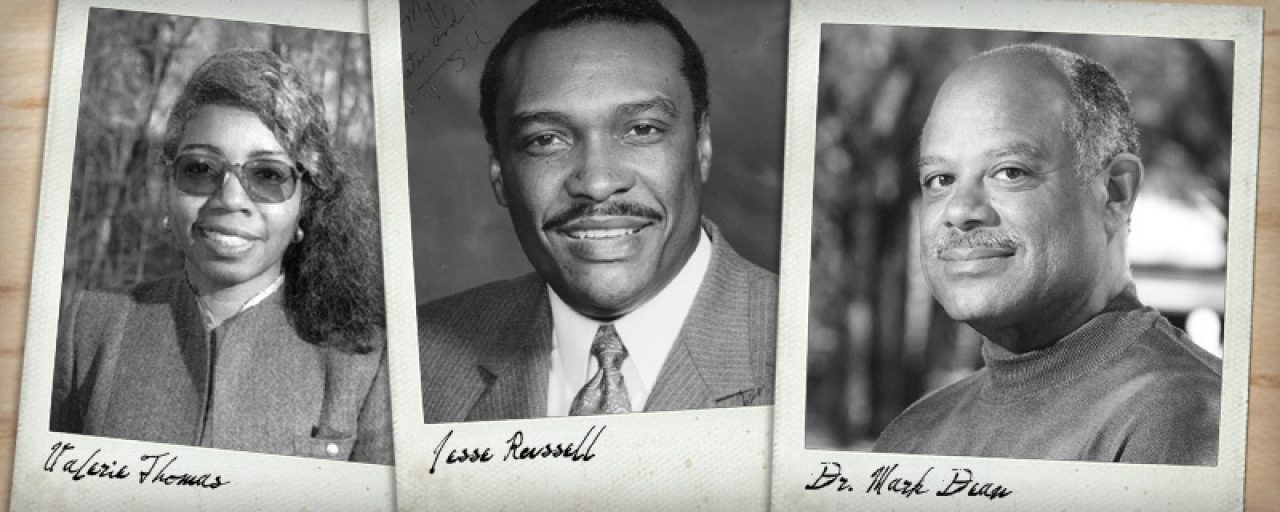Black History Month: 3 Tech Inventors Who Changed the World
February is Black History Month, and we'd like to start by highlighting 3 African-American tech inventors who changed the world with their innovations.
All inventors struggle and work hard to bring their ideas to life, but some change the very world in which we live. As we celebrate Black History Month, let's spotlight some of the incredible African-American tech inventors whose contributions have deeply influenced the modern technology we depend on today.
Mark Dean: Developing the PC
Mark Dean is an inventor, engineer, and computer scientist who was instrumental in developing the PC. After graduating from the University of Tennessee in 1979 (B.S. Electrical Engineering), Dean was hired by IBM as a chief engineer for the personal computer project. He spent the next 30 years innovating the personal computer. When IBM released the PC, the company had nine original patents; Dean was responsible for three of them.
His inventions include the ISA system bus that allows external equipment like printers, speakers, disk drives, and scanners to be plugged into computers. Dean's work at IBM, like developing the first color monitor, helped bring us the PC and changed personal computing forever. The whole time he was making these great innovations, he continued learning by going to school, earning his Master's and his doctorate.
Dean has over 20 patents in his name and is considered one of the greatest tech inventors of all time. He has earned much recognition for his work, including the Black Engineer of the Year President's Award. He is a member of the National Academy of Engineers and an IBM fellow, and he was inducted into the National Inventors Hall of Fame.
Jesse Russell: Developing the Cellphone
Jesse Russell's inventions were crucial in bringing us the modern cellphone. He was hired by Bell Labs after earning his B.S. in Electrical Engineering from Tennessee State University. Russell changed the wireless communication industry with inventions like the first digital cellular base station, a mobile data telephone patent, and several wireless communication patents.
Russell was one of the first to recognize the potential for mobile phones. By 1988, Bell Labs had created the first digital cellular system, with his help. Like many inventors, Russell continued to educate himself while he invented, and he earned his Master's degree from Stanford. While no single person is credited with inventing the cell phone, there is no doubt that Russell's innovations greatly influenced and contributed to the cellphone's evolution. Including smartphones!
After 30 years in the industry, Russell holds over 100 patents. His work has reshaped the way we communicate. Russell has won numerous accolades: US Black Engineer of the Year, America's New Leadership Class Award, Outstanding Service Award, Outstanding Scientist Award, and Scientist of the Year Award. He is an IEC fellow and an IEEE fellow, and he was inducted into the National Academy of Engineering.
Valerie Thomas: Developing Space Knowledge
Valerie Thomas is a major contributor to the study of space. Even though she was interested in science and technology from a young age, girls were not encouraged to pursue those studies. But she did. After graduating from Morgan State University, Thomas started working for NASA in 1964. She worked for NASA until retiring in 1995. During that time, she designed and developed real-time computer programs to examine Halley's Comet, research the ozone layer, and conduct many large-scale experiments.
Thomas led a team that developed Landsat, an image processing system that sent the first images from satellites to Earth. She invented and holds the patent for an illusion transmitter which uses concave mirrors to create a 3D image. This technology is still being used by NASA, surgeons, and TV screen producers.
Thomas has received several awards, like the Goddard Space Flight Center Award of Merit and the NASA Equal Opportunity Medal. Her contributions have helped humans expand their knowledge of space and our place in it.
All three inventors showed a passion for technology and innovation, even at a young age. Sadly, they also grew up experiencing segregation and racial discrimination. Can you imagine what challenges they must have faced, both personally and professionally? Yet they pushed on to follow their dreams and change the world. These inventors are not just admirable role models for future inventors, but strong examples of why we should encourage the potential, talent and intellect of all our nation's students.
Each week, Bask sends fun educational content to our thousands of members and email subscribers. Improve your technology know-how with tips, tricks, history, news and more by signing up for our newsletter today!

 Member Connect
Member Connect